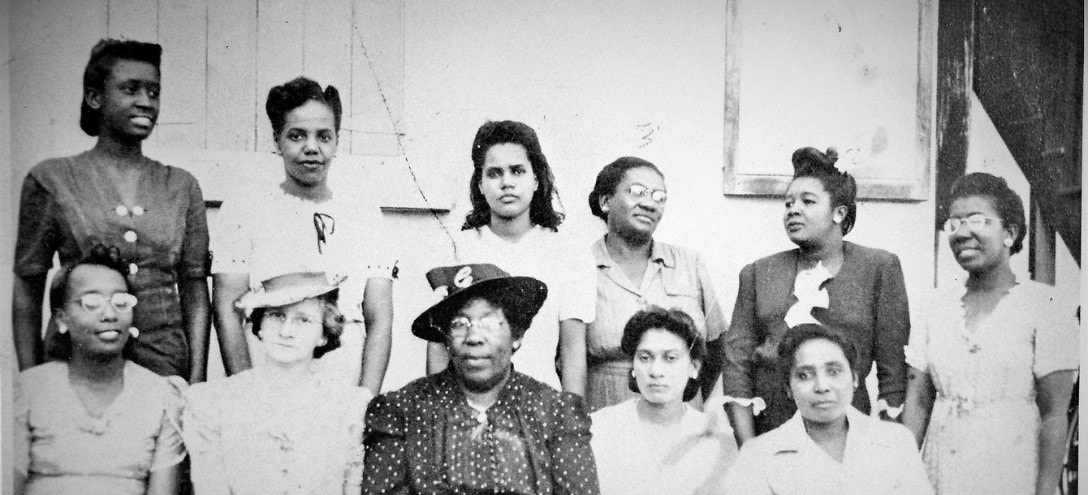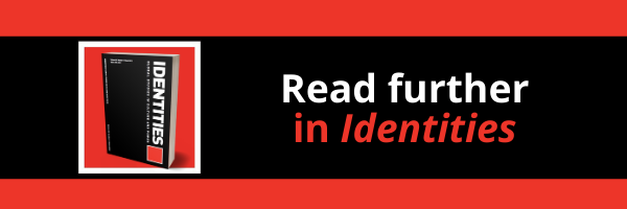|
|
|
After living in Miami, Florida, for several years, Mother Frances Butler returned to her home in Nassau, Bahamas and founded the Mother’s Club, which provided social welfare support to the Bahamian Black community. Along with similar groups, the organization offered a variety of social services where they fundraised as a part of hurricane recovery, aided the war effort and offered health and other social services for women and children. In 1937, Mother Butler changed the title of her organization to The Young Women’s Christian Association.
The building that formerly housed the Mother’s Club sits at the corner of Goal and East Street in the heart of Nassau. The building is in the Grants Town community and was originally established by the Bahamian government to house freed people and Liberated Africans in the early 1820s. This area is one of the communities located in what is known as the ‘Over the Hill’ neighbourhoods in Nassau. These neighbourhoods became a rich site of Black life during the 19th and 20th centuries, as Black people in the Bahamas encountered poverty and racial oppression. Mother Butler also founded other Black-led organizations, including the Young Men’s Christian Association and the Silver Bells.
Today, the former home of the Mother’s Club, once a thriving site of community activity and no longer in use, seemingly shrouded by time, is emblematic of these hidden histories of community development, not only in Bahamian Black communities but also across the Caribbean. Spaces like these created a sense of belonging and community vitality at a time when there were limited avenues for greater equality and inclusion for Black and marginalized groups. Even though the building is no longer in use, it serves as a historical reminder of these kinds of early 20th century institutions that were critical progenitors of the political and social institutions that emerged within the Anglophone Caribbean in the period of national independence, and those that exist today. Furthermore, institutions like the Mother's Club are valuable touchstones for assessing how philanthropy develops within underrepresented and formerly colonized communities.
In my Identities article, ‘Reassessing philanthropic cartographies: the Caribbean lens’, I hone in on these less recognized philanthropic activities in the Caribbean while also recognizing the more prominent, well-known and large-scale philanthropic approaches, most commonly observed through institutional philanthropic foundations and wealthy donors.
The article further analyzes how these varying forms shape the development of the Caribbean. Furthermore, the article seeks to broaden the definition of philanthropy by including and analyzing the experiences of underrepresented groups while tracing how more dominant and recognized philanthropic practices were shaped by and influenced colonization and imperialistic goals. I use the Caribbean as a rich environment to assess these formations with their varied and diverse colonial and postcolonial histories. I center the Anglophone Caribbean recognizing aspects of unified and diverse features of the Caribbean based on common and shared histories, while also recognizing distinct colonial powers and resultingly varied decolonial processes and conditions. The article finds that there is much to assess when looking at three primary social classes or ideal types in the Caribbean that include: 1) the colonial dominant, 2) the Black or creole middle class and 3) the resisters or grassroots/marginalized populations. Within these categories of ideal types and classes, three corresponding categories of philanthropic practice developing within and through the Caribbean emerge, including: 1) the philanthropy of colonial dominance, 2) the philanthropy of cultural mediation and 3) the philanthropy of anticolonial resistance. In unpacking these types, the importance of social identities of race, gender and class are valuable in observing philanthropic practices based on Caribbean social positions and hierarchies that the scholar Sidney Mintz notes were developed based on the significance of the Atlantic slave trade, plantation economies and colonial policies. Cases within each category include both a historical and a contemporary example, and utilize and engage scholarly theorizing, archival and historical research, literature and music. While the philanthropy of colonial dominance engaged in strategies of colonial paternalism and a sense of distance from the communities served, mediating philanthropy, led by middle-class leaders and communities (like Mother Butler and her work with the Mother’s Club), created practices of negotiation based on their close connection with Black and underrepresented communities, as well as their access to the institutions of power and governance. The philanthropy of anticolonial resistance concentrates on the practices developed by those on the margins, while depicting their empowered stances against racism and other forms of oppression. The examples in the article range from the impact of tourism and related philanthropic activity, the current quest for reparative justice and the influence of dancehall music, along with the experiences of garrison and other underrepresented communities. These examples and ideal types provide a broadened sense of philanthropy that underscores the interplay of power and social hierarchies. By drawing on both historical and contemporary examples, it reveals the persistence of these histories and philanthropic practices and speaks to the value of centering the histories and current experiences in the Caribbean as a dynamic site to observe social change. This kind of analysis also highlights persisting Caribbean regional development challenges. Furthermore, the framework presented documents the critical importance of centering individual and community agency, especially locating hidden or silenced voiced, while also representing the multiple and sometimes contentious commitments to addressing social problems.
Image credit: Bahamas YWCA. Mother Frances Butler (centre) with other founders and leaders of the Young Women’s Christian Association in The Bahamas.
Blog post by Kim Williams-Pulfer, The Lilly Family School of Philanthropy, Indiana University-Purdue University, USA
Read the Identities article: Williams-Pulfer, Kim N. Reassessing philanthropic cartographies: the Caribbean lens. Identities: Global Studies in Culture and Power. DOI: 10.1080/1070289X.2022.2079306
Read other relevant Identities articles:
Caribbean place identity: From family land to region and beyond Locality in today's global Caribbean: shifting economies of nation, race, and development “Coloniality of power” and racial dynamics: Notes toward a reinterpretation of Latino Caribbeans in New York City
0 Comments
Your comment will be posted after it is approved.
Leave a Reply. |
|
Explore Identities at tandfonline.com/GIDE |
|
The views and opinions expressed on The Identities Blog are solely those of the original blog post authors, and not of the journal, Taylor & Francis Group or the University of Glasgow.




